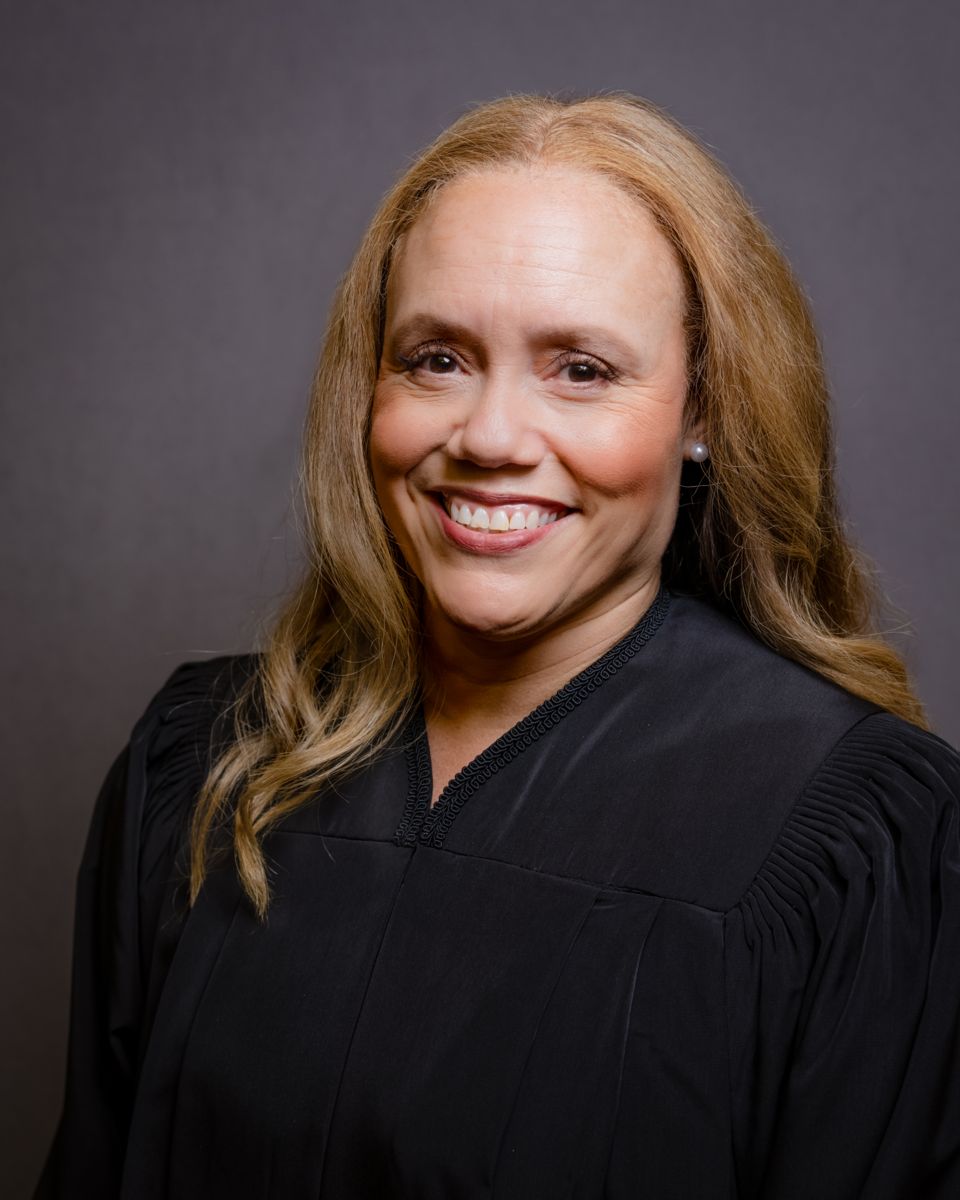‘Give me the goods’: State judges tell young lawyers how to win trust, cases in the courtroom

Be prepared. Know the courtroom. Learn the judge’s background. Make clear what you want. Show the judge how to get there. Look nice. Be mindful of the stickers on your water bottle.
Those were some of the bullet points of advice that new attorneys heard earlier this month at the Lindsey-Flanigan Courthouse in Denver. The Dec. 8 orientation, hosted by the Young Lawyers Division of the Colorado Bar Association, featured five trial judges from the metro area who rattled off their personal lists of pet peeves and encouragements to those who are not yet versed in the ways of the courtroom.
“We came from different backgrounds. So, I may not know anything about your discrimination claim. It’s not where I practiced. I’m learning also. So, give me the goods,” said Boulder County District Court Judge Dea M. Lindsey. “I don’t need a treatise, but I need to know where to look.”

Lindsey appeared on a panel with Broomfield District Court Judge Sean Finn and Denver District Court Judge Marie Avery Moses. Moses said she could always tell when a lawyer was appearing in the nearby City and County Building for the first time by seeing them hunt for an electrical outlet. She noted there are none in the nearly 100-year-old structure’s courtrooms.
“Know your courtroom. Before trial, swing by and check it out,” Moses suggested.
The judges spoke favorably about attorneys who are prepared with binders of evidence, and who know how to anticipate and respond to objections from the other side. They acknowledged new lawyers can have “nervous energy” that might be useful in contested matters, but attorneys cannot rely on judges to guide them through their own case.
“I can always tell who’s most prepared. Who’s ready to rock,” said Lindsey. “I always say the person who is most knowledgeable typically wins.”
Honesty and credibility
The panelists singled out domestic relations cases – divorce, custody – for special warnings, given the highly personal subject matter.
“The cardinal sin, in particular, in domestic relations court is taking on the emotional baggage of your client,” Finn said. “You need to be the professional and you need to be the grown-up sometimes.”
He elaborated that judges who hear domestic relations cases hope they will be able to make decisions in the parties’ best interests and put them on “a path to succeed.” To that end, judges are more interested in hearing proposed solutions rather than fixating on the disagreements.
“It has to be, ‘Here’s the problem, here’s the best possible solution.’ I’ll tell you if you have that and the other side does not, you’re way out in front,” Finn added.
The judges advised lawyers to be honest with clients about how judges or juries will perceive certain aspects of their case.
“Putting forth an argument for your client is one thing. But not talking it straight to your client is another,” Lindsey said. “And if they don’t like it, they can’t be your client. It’s that simple. You cannot put your law license on the line for anyone. For any reason.”
Lawyers can tell a judge, “‘My client really wants you to know this and he thinks he’s entitled to this.’ That’s OK if it’s honest,” Finn said. But “no case is worth your credibility.”

When trying to persuade a judge, the panelists suggested using short sentences, strong verbs and few adjectives. Attorneys should also point judges to the law or court precedent supporting their client’s request.
“Know that judges need something to hang their hat on,” Moses advised. “So, spend extra time to say, ‘I want you to do it and here’s your authority to do it.'”
The judges all agreed they would want someone to tell them if they misgendered a participant in a case. Even though they would not berate someone for their fashion choices, they suggested to just “look nice” in court. However, Finn warned against showing up in a t-shirt that says, “snitches get stitches,” as a criminal defendant once did.
How to act in front of the judge
After the panel discussion, District Court Judge Adam J. Espinosa, who lent his courtroom for the orientation, walked through the do’s and don’ts of courtroom etiquette. He read the feedback he solicited from other judges in the district courthouse.
“Your water bottles. Don’t drink out of water bottles,” suggested Judge Jay S. Grant, given that people sometimes personalize their water bottles with distracting or ideological stickers. Also, Grant said to avoid looking “too flashy.”
“That might be something where jurors might view you differently or presume things about you,” Espinosa explained. “They might think, ‘You have too much money and you don’t get it. I can’t trust you or relate to you.'”

District Court Judge Alex C. Myers, who joined Espinosa in person for the talk, said lawyers were welcome to bring their own water bottles in his courtroom – but should avoid pouring water over the table in case a distracting spill occurs.
Among the other “low-hanging fruit,” Myers warned to be on time.
“The last thing you want is for the judge to yell at you for being late when your client is in the room,” he said. “Because your client thinks, ‘Oh, my god. The judge hates my lawyer. I’m screwed!”
Upon becoming a judge, Espinosa said he was advised when opening his docket to first call the case with the lawyer who is always prepared, so everyone else waiting can “see how it’s done.” He also watches other judges’ livestreams on his breaks, in order to learn how to handle scenarios he has not yet experienced.
Importantly, Myers said, he enjoys seeing opposing lawyers who work well together. Professional behavior can also make an impression upon jurors.
“Did it help the jury decide whatever they were to decide? I don’t know,” he said. “But they didn’t think they were jerks.”

michael.karlik@coloradopolitics.com











